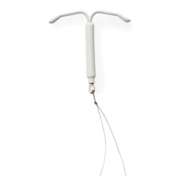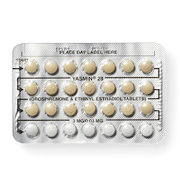How birth control can help your mental health
Happy Mental Health Awareness Month!

May is Mental Health Awareness Month, a time dedicated to breaking down stigma and supporting those with mental illnesses and their loved ones. To honor the month, here are a few ways that birth control can help support your mental health and help you say #ThxBirthControl.
-
It can give you a sense of control
As someone who struggles with depression and anxiety, I rely on my IUD to give me peace of mind in a world where I otherwise feel out of control. A queer friend of mine with an anxiety disorder prefers to use birth control pills to completely suppress her period. For her, being in control of when and if she gets her period is not only convenient, but also reminds her that she’s in charge of her body. All our experiences are unique, so always speak to a health care provider (check out our clinic finder to locate one near you) and mental health professional about any questions you have.
-
It can alleviate some causes of depression
Hormonal birth control can help alleviate the depression symptoms associated with conditions such as premenstrual syndrome (PMS) and premenstrual dysphoric disorder (PMDD). For many people, birth control helps to manage and even improve their moods and overall mental health.
-
It can reduce your stress and improve your sex life
Stress can take a toll on your sex life. In addition to libido loss, people who are stressed may experience anxiety and headaches, and people with a uterus might experience irregular menstrual cycles. Birth control is not a cure-all for stress and anxiety, but it can certainly reduce your stress and anxiety about a potential unplanned pregnancy. Knowing that you’re protected from pregnancy can enable you to enjoy intimate moments and not panic while waiting for a late period.
There are many types of birth control. How can you know which will best fit your needs? A conversation with your health care provider is essential. Here are some of the things you may want to consider:
-
Whether you already have medication to manage
For many people with mental illnesses, there is medication to manage. Having to take a birth control pill at the same time every day can potentially add complications to that routine. Using a type of birth control you don’t have to take every day, like an IUD or an implant, might be easier. And if you’d rather avoid hormones, there’s the copper IUD, which contains no hormones of any kind (and can even be used as emergency contraception).
-
Whether your medication could harm a developing pregnancy
Another thing to keep in mind is that some of the medications used to treat mental health conditions can be harmful to a developing pregnancy. If that’s a concern for you, it may be especially important to choose your birth control carefully to make sure you’re using a method that’s highly effective.
-
Whether your medication might reduce the effectiveness of certain types of birth control
While most medications don’t interact with birth control, there are a few mood stabilizers that can make some methods less effective, increasing the chance of an accidental pregnancy.
Take the time to figure out how different birth control methods match up with your lifestyle and state of mind and start a conversation with your health care provider. Talking is power, and using your voice to make sure your birth control journey is happening on your terms is the first step.
There are many options, and together, you and your provider can figure out what method works best for your body and your mental health. I can confidently say that having an IUD helps to ease some of my anxiety, keeps me grounded, and gives me hope for a future full of possibilities. And I’m so thankful that birth control has helped to improve my mental health! Everyone deserves to say #ThxBirthControl.
If you’re in crisis, call your mental health provider, 911, or the National Suicide Prevention Lifeline at 1-800-273-TALK (8255). Or use their online chat to talk to a skilled, trained counselor at a crisis center in your area at any time. If you are located outside the United States, call your local emergency line immediately.
How do you feel about this article?

Heat up your weekends with our best sex tips and so much more.


